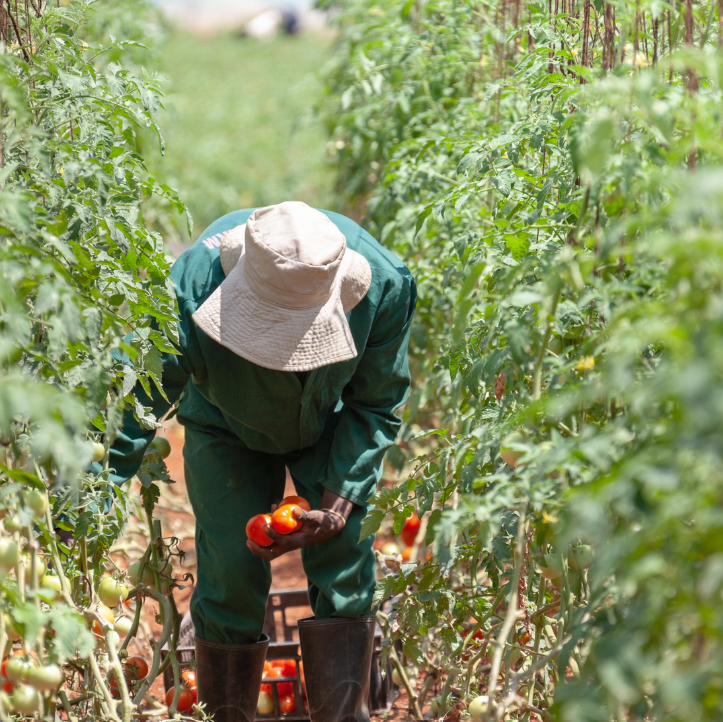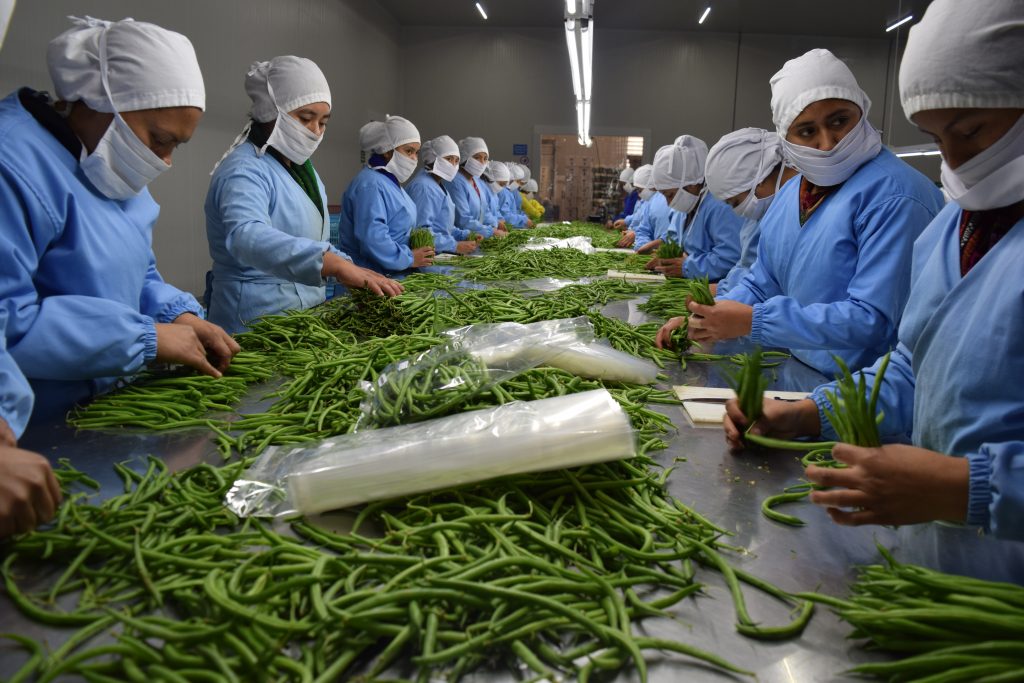As a second wave of COVID-19 surged across Nepal last month, the government responded by instituting strict lockdowns, and residents and farmers faced a familiar uncertainty. Small-scale producers feared the market for their fruits and vegetables vanishing, and community members stuck indoors lacked easy access to fresh food.
But Heifer Nepal had faced this dilemma before, during last year’s lockdown. By building on their previous success, a group of partner organizations working together with the Heifer team found a solution to save produce from spoiling and get food to the hands of hungry homebound customers: by transforming two pickup trucks into agri-ambulances.

Photo: Heifer International
In the Tansen Municipality of the country’s western hills, Heifer Nepal partnered with the nonprofit Rural Economic Development Association, the Milansar Social Entrepreneurs Women’s Cooperative and the Namikuwa Youth Group to jointly initiate the produce-delivery service, to the relief of many smallholder farmers.
“We had an abundance of production, but marketing was lacking, and farmers as well as consumers were deprived,” said Ashok Kumar Shahi, chief of Tansen Municipality. “This service from Heifer and the cooperative revived the market.”
One of the vehicles belongs to the women’s cooperative, procured for them by Heifer Nepal, and the other vehicle is rented with money provided by the municipal government. Both agri-ambulances now pick up vegetables from farmers, drive to nearby communities and sell the seasonal produce — including beans, cucumbers, jackfruit and cabbage — to interested customers in the area. For safety, employees wear personal protective equipment and local police help maintain social distancing.
“We had an abundance of production, but marketing was lacking, and farmers as well as consumers were deprived. This service from Heifer and the cooperative revived the market.” — Chief of Tansen Municipality Ashok Kumar Shahi
So far, the initiative is benefitting many producers and community members alike. Since it began at the end of May, the agri-ambulances have transported and sold more than 44,000 pounds of produce from 109 small-scale farmers to over 5,000 consumers.

Photo: Heifer International
“We had planted the vegetables after the end of the first lockdown and by the time they were of marketable quality, the second lockdown had already begun,” said Gita Basyal, a vegetable producer in Tansen Municipality.
With the prospect of perishing produce threatening farmers like Basyal’s livelihoods, Heifer Nepal and their partners took action right away. Working with local level authorities to launch the service was easy to navigate at pace since Heifer had experience launching an agri-ambulance in Hupseykot, Nawalpur last year. Municipal leaders also understood the farmers' plight, and offered grants to support the packaging and transportation of produce.
“Luckily, I salvaged two quintals (440 pounds) of produce with the start of this ambulance service,” said farmer Santosh Kumal, who lost three quintals, or 660 pounds, of vegetables before the initiative began.

Photo: Heifer International
The vehicles transported and sold nearly one ton, or 2,000 pounds, of farmer Pushpa Shrestha’s vegetables in good condition, and producer Hari Bhandari enjoyed a similar success: 880 pounds of beans and half a ton of their cucumbers made it to market.
The service not only keeps produce from spoiling, but it also eliminates intermediaries by transporting the fruits and vegetables directly from farmers to consumers. As a result, producers’ profit margins have increased by around 20% and buyers pay 40-80% less than they would in a typical market.
Amid the country’s ongoing health crisis, fresh produce is of critical importance. Studies have found that deficiencies in micronutrients lead to impaired immune responses, so nutrient-rich fruits and vegetables, like those grown by farmers supported by Heifer and delivered by the agri-ambulances, are essential for boosting immune systems and improving overall health.
And the initiative shows no signs of slowing down. Demand for produce is so high that vegetables are selling out within 45 minutes in some communities, and every day the quantity transported — and the bundles of fresh harvest sold to consumers — continues to grow.
This article was originally published by Heifer International.

